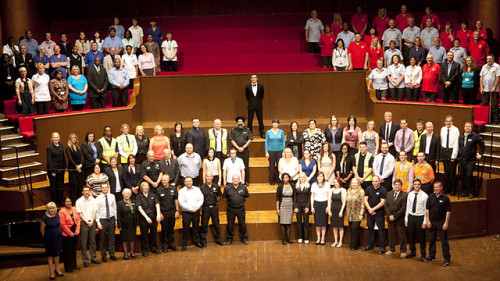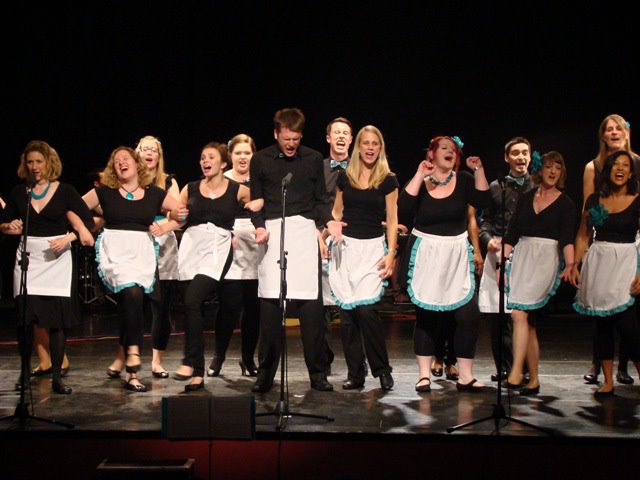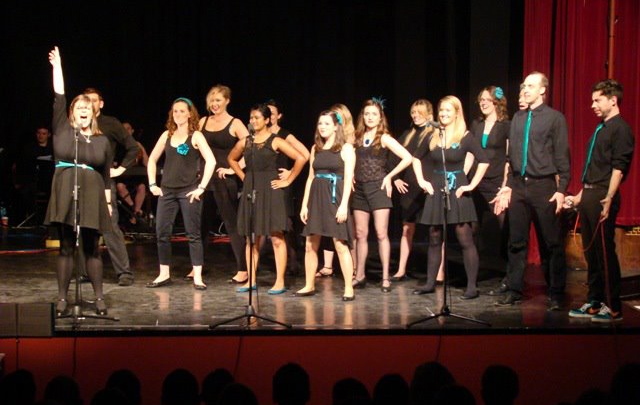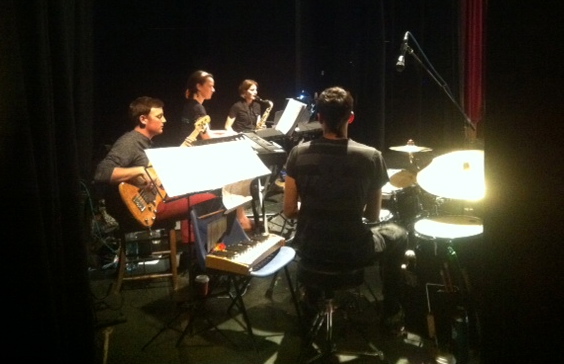I've just finished watching the last episode of The Choir - Sing While You Work, and I'm crying; the closing rendition of all four choirs performing 'How Can I Keep From Singing' proves why singing in a group is such an uplifting, moving, motivational and brilliant thing to do.
As a choir leader, I'm a big advocate of programmes like The Choir for showing people that choirs don't have to be religious or made up of middle-aged, middle-class folks and boy choristers hiding behind hymn sheets. Choirs are for the soul. While the TV series frustrates me sometimes (the continuity errors, singers seemingly plucking song ideas out of the air and music miraculously appearing, not showing the long slog before songs begin to sound anywhere near good and the vocal arranger only getting a mention in the closing credits...), it also inspires me, reassures me that we do a good job at Starling Arts and reminds me why we started up the company - community.
If our new feature, Starling of the Week, has proved anything, it's the diversity of the people we have singing in the Starling community. Be they doctors, teachers, consultants, charity fundraisers, gas engineers or students, all our singers come from very different day jobs and backgrounds to be united in song. We're now like a family, with people house sharing, dating, working and holidaying with people they've met through the choirs. For me, that's the best thing about it - the singing is just a bonus.
However, while we've set up a community, what I admire most about all of Gareth Malone's TV shows is that he goes into existing communities to unite people who don't know one another and that they share this communal identity. Whether it's the military wives, the people of South Oxhey, school kids, teachers and now work places, he has proved how a more tangible identity, such as a choir, can only compliment and strengthen the affinity and loyalty one has with their community and each other's lives.
 Gareth and his four work place choirs. Picture source: www.bbc.co.uk
Gareth and his four work place choirs. Picture source: www.bbc.co.uk
Watching the four work place choirs in action was quite overwhelming. Many of the singers had never sung in public before joining their respective choirs, and to have the chance to be on stage and take part at the International Eisteddfod is quite the experience! I was with the judges when it came to choosing the winning choir, Severn Trent Water, and not just because they wore Starling's trademark black and teal!
Performances always seem to bring choirs together even more - the singers have to, literally, face the music as a team. But it's the rehearsal space where the community grows that is something magical to be a part of, and I really hope this series has encouraged other work places to start a choir, or find someone who might help them to do so (apply within..!)
Alongside the series, I've been reading Gareth's new book Choir: Tears, Triumphs and Transformations, which has helped to fill in some of the gaps the TV show leaves out for purists like me. Most importantly, the book acknowledges the struggle and pressure a choir leader is under. Organising that many people is hard work, and even if music comes naturally to you, good leadership and musical ability don't necessarily go hand in hand. It's fascinating to see the learning curve and journey Gareth's been on in the last six years, and it's something I know Emily and I share also. Like Gareth, we pour hearts and souls into our choirs, and need them, and singing, as much as they need us to lead them.
Last week, I also cried watching another singing related TV show, Sing For Your Life. Led by Cat Southall, the programme documented a choir set up with and for cancer patients and studied whether the positive mental attitude and benefits of singing would help their cancer treatment. While the medical research was rather left to one side in the film, the programme proved, like The Choir, how bringing people together to sing can be so rewarding and empowering and was all the more poignant with this group; that the patients could share their prognosis, treatment and outlook with other people going through the same ordeal was one thing, but that they could sing, be uplifted and find strength in song to overcome or deal with some of this pain was incredibly overwhelming.
All this brings me back to Starling Arts. The final question we ask in Starling of the Week is simple: 'Starling Arts is...?' and both Sing While You Work and Sing For Your Life reminded me of one of our yet to be published responses - 'Starling Arts is... therapy'.
In some ways, I think we're always singing for our lives.
- Anna






